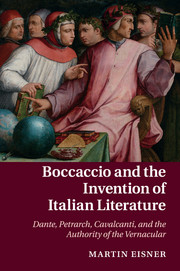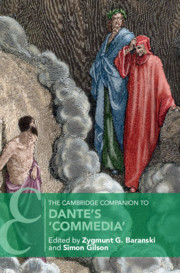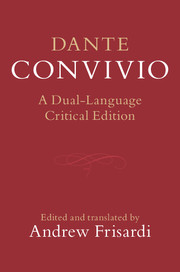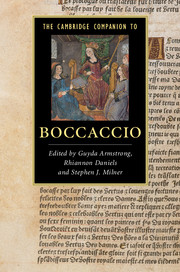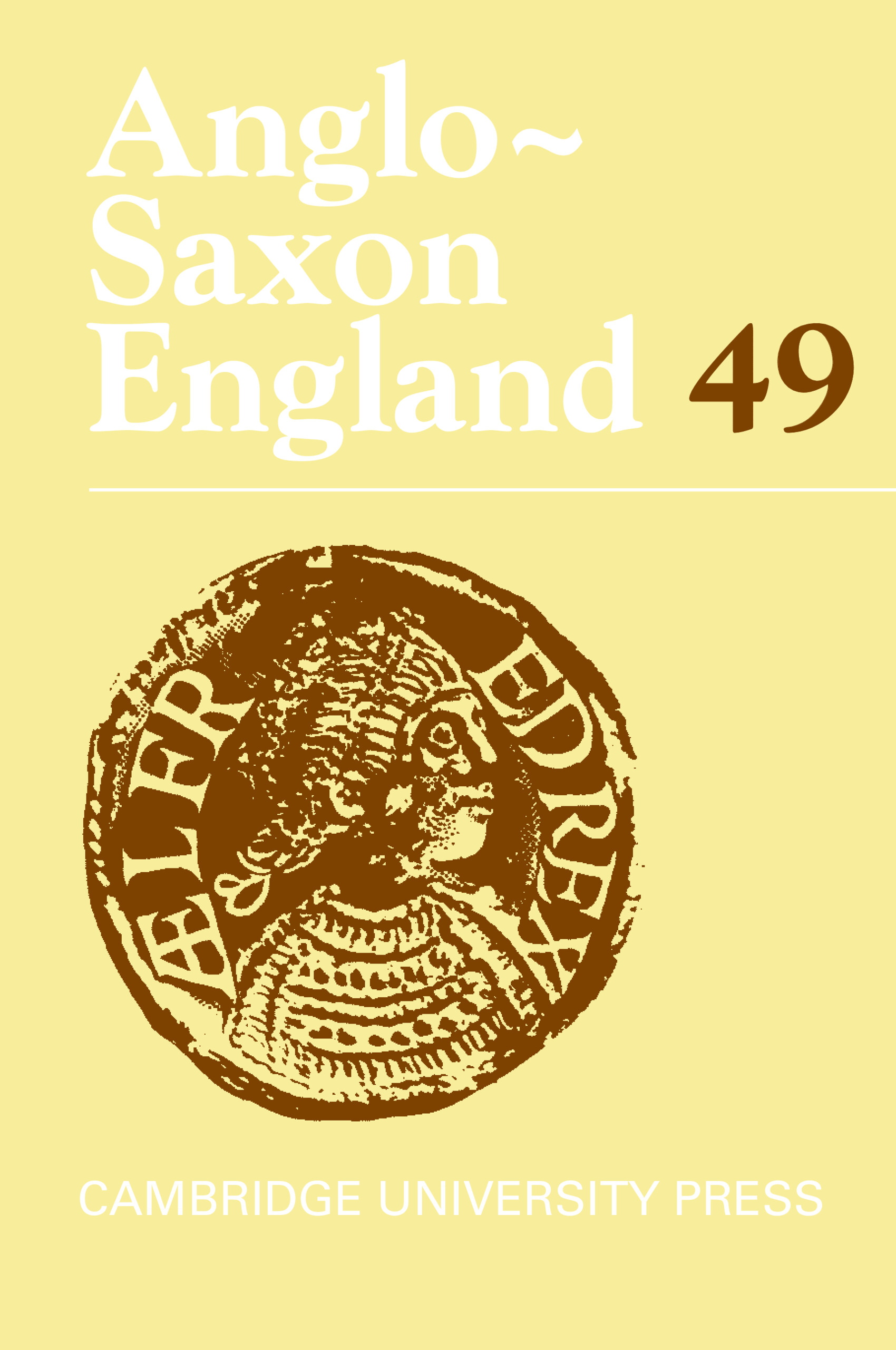Boccaccio and the Invention of Italian Literature
Giovanni Boccaccio played a pivotal role in the extraordinary emergence of the Italian literary tradition in the fourteenth century, not only as author of the Decameron, but also as scribe of Dante, Petrarch and Cavalcanti. Using a single codex written entirely in Boccaccio's hand, Martin Eisner brings together material philology and literary history to reveal the multiple ways Boccaccio authorizes this vernacular literary tradition. Each chapter offers a novel interpretation of Boccaccio as a biographer, storyteller, editor and scribe, who constructs arguments, composes narratives, compiles texts and manipulates material forms to legitimize and advance a vernacular literary canon. Situating these philological activities in the context of Boccaccio's broader reflections on poetry in the Decameron and the Genealogy of the Gentile Gods, the book produces a new portrait of Boccaccio that integrates his vernacular and Latin works, while also providing a new context for understanding his fictions.
- Provides a fresh understanding of Boccaccio's complex interactions with Dante, Petrarch and Cavalcanti
- Offers a new perspective on the emergence of the Italian literary canon in the fourteenth century
- A novel account of Boccaccio's intellectual development, no longer divided between vernacular and Latin
Reviews & endorsements
'Eisner’s book is a welcome addition to studies on the self‐authorizing project of the Italian poets at a key moment in the rise of European vernaculars. It is also a particularly fine specimen of the 'material' turn in medieval literary studies. A reliable guide to this intricate web of interconnectedness, Eisner shows how productive the combination of philology and interpretation can be, tracing convincingly the impact of paleographical features on reception, the significance of making a book, the significance of page layout, of juxtaposition, of inclusion and exclusion, of editorial choices, of contamination in transcription - and Boccaccio’s unique role in all of this.' Alison Cornish, Modern Philology
Product details
September 2016Paperback
9781316619698
262 pages
230 × 153 × 15 mm
0.4kg
7 b/w illus. 4 tables
Available
Table of Contents
- Introduction: Boccaccio between Dante and Petrarch: cultivating vernacular literary community in the Chigi codex
- 1. Dante's dirty feet and the limping republic: Boccaccio's defense of literature in the Vita di Dante
- 2. Dante's shame and Boccaccio's paratextual praise: editing the Vita nuova, Commedia, and canzoni distese
- 3. The making of Petrarch's vernacular Book of Fragments (Fragmentorum liber)
- 4. The inventive scribe: glossing Cavalcanti in the Chigi and Decameron 6.9
- Epilogue: the allegory of the vernacular: Boccaccio's Esposizioni and Petrarch's Griselda.

